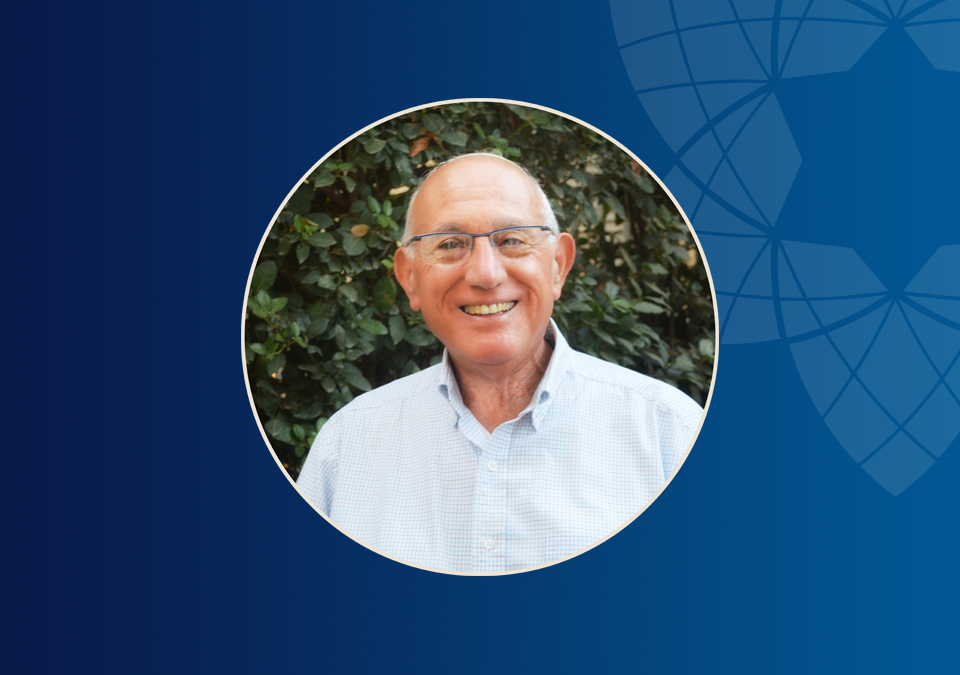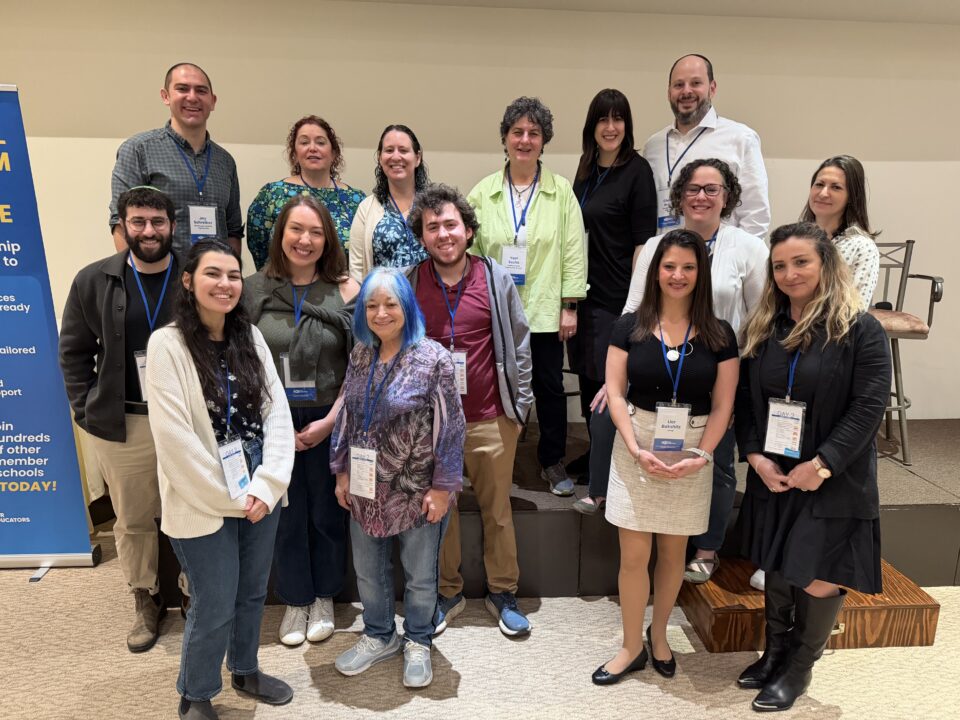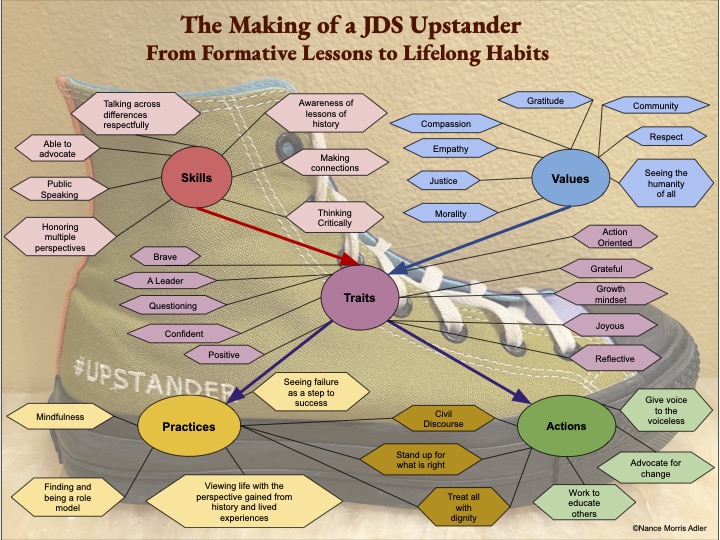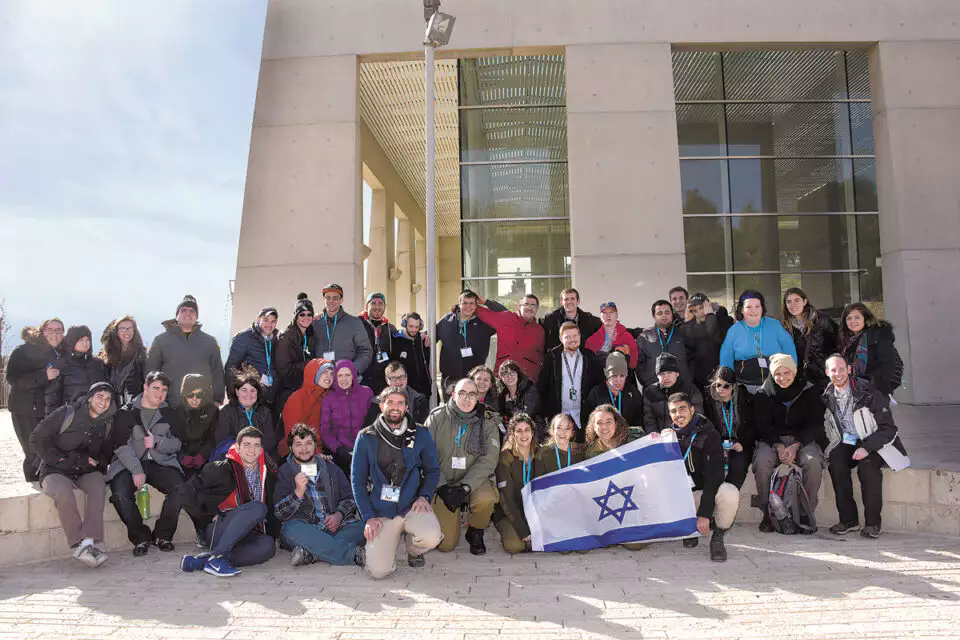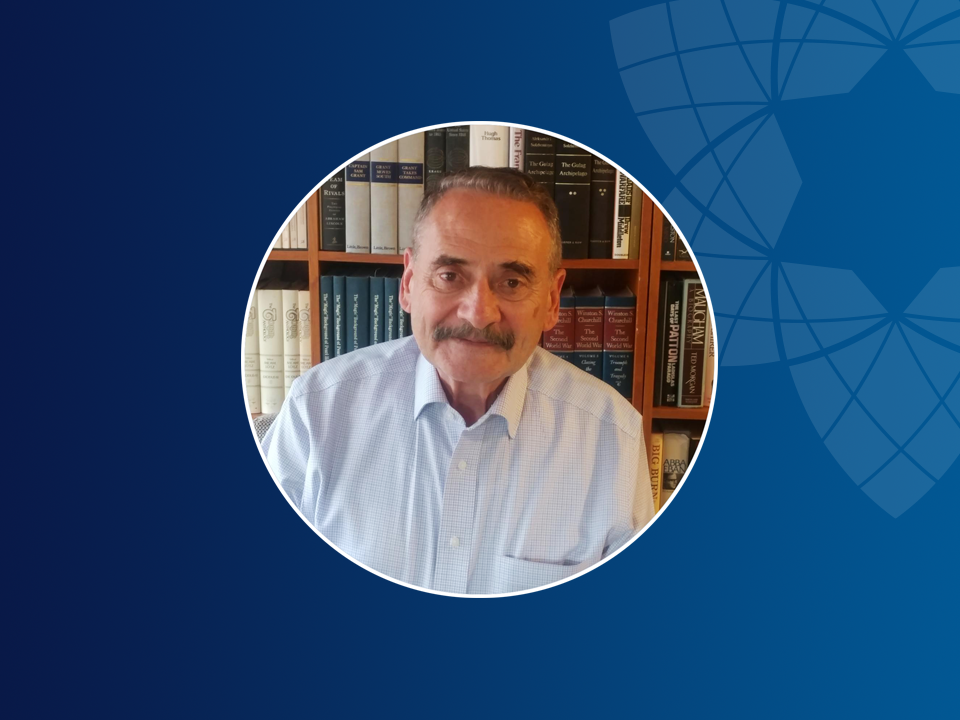
Samis Trustee Spotlight: Jerome Cohen
September 13, 2021
Day School Alumni Spotlight: Benjamin Cape
October 15, 2021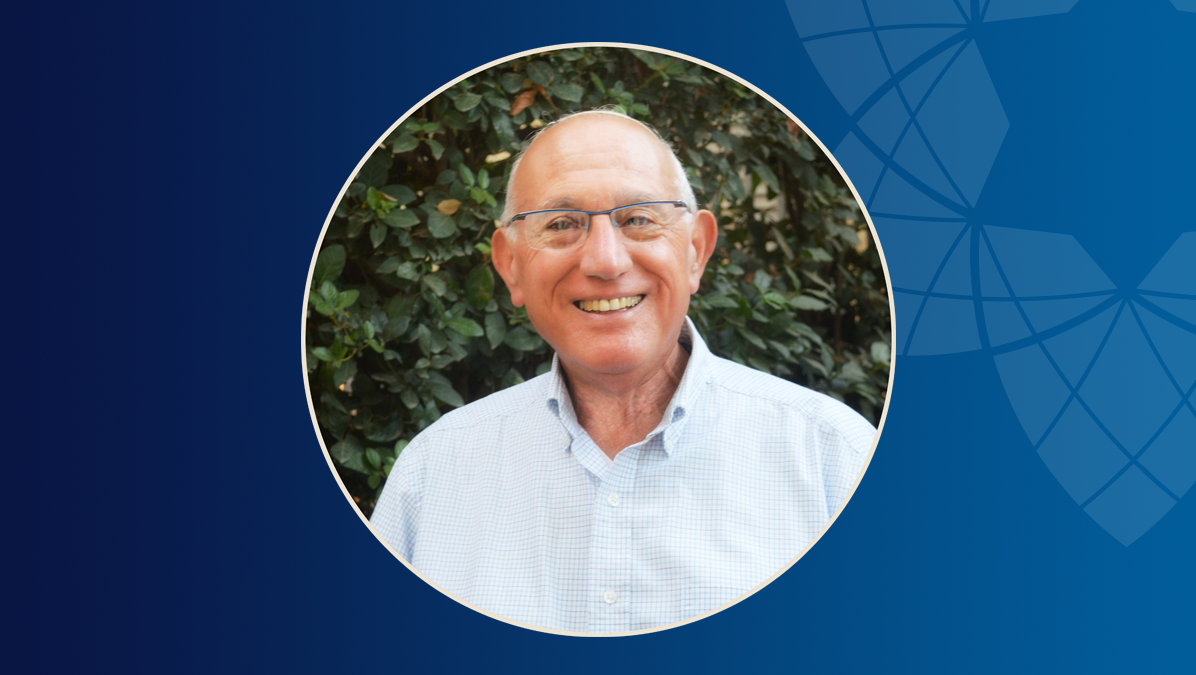
A conversation with Israeli trustee and lifetime Samis board member, Barry Ernstoff
Years of Service: Lifetime Trustee
Committee (s): Israel Sub-Committee
Did you have a personal connection to Sam Israel before joining the board?
The answer is yes, I did. For a number of years, I was President of the Seattle Hebrew Academy and in that capacity, I heard from Sam every once in a while, when he would write a letter. On a rare occasion I would pick up the telephone and hear his voice on the line. About 48 years ago, we had the opportunity to buy Seattle Hebrew Academy’s current property, but it was a convent for nuns. I remember a few of us, including Eli Genauer and Victor Alhadeff, went through the building literally taking down the crosses from the rooms. I was involved with the Seattle Hebrew Academy, and if you were involved with the Seattle Hebrew Academy you were involved with Sam Israel. While I was living in Seattle, I had knowledge of Sam’s reputation, but besides speaking to him on the phone and through letters, I met him only once in person after he had a stroke and was at the Kline Galland home. His nephew, Eddie Hasson, asked me to come in and talk to Sam, but he wasn’t fully himself at that point.
I also had involvement with Sam related to Israel. I learned a lot about the support that Sam was doing for people in Israel and it resonated with me. But the main story I can recall in interacting him was when he called me and told me that there was a mortgage on the Seattle Hebrew Academy property, which of course I knew. He even told me the exact dollar amount in a very thick Greek accent, so it wasn’t so easy to understand, but he said to me “I’m sending you a check for $111,212 and 47 cents. You have to pay off the mortgage on the property and promise me that there will never be a mortgage on the property again.” I said this to Sam, “As long as I’m involved with things here there will not be a mortgage on the property.” He sent the check to the bank and paid off the mortgage.
Another interaction I had with Sam was when I was on the board of the Federation. When the Russian Jews were allowed to leave the Soviet Union, many left via Vienna on the basis of immigrating to Israel, but a lot of them went to America. The Federation had a big meeting of the Board about having a program to contribute money towards supporting and bringing Russian Jews to Seattle. I voted against it along with another board member. We both voted against it because in my opinion the Russians had no Jewish background and if we brought them to Seattle, I was concerned they would disappear through assimilation and they wouldn’t be part of the Jewish community. Sam Israel was asked by people at the Federation to give a gift for this program and he refused. He wrote a letter in which he said, “I’m not going to pay money to have Russian Jews come to America, come to Seattle, and assimilate and not be Jews anymore, which is what’s going to happen. They should all go to Israel.” I had great respect for what he did at that time.
Please describe your most memorable interaction with Sam.
The most memorable interaction I had with Sam was the issue of the Seattle Hebrew Academy mortgage. I’ll never forget that. What I respected so much about Sam is that he marched to his own drummer. He did what he wanted and he was not like the rest of us. He wasn’t influenced by what’s around him. He wasn’t married. As we all know, one of the main influences we have is our spouse, and he didn’t have one of those. He didn’t really care whether he was beloved or not, and he had very definite views about things. So, when he just called me up and told me to pay off the mortgage and not have a mortgage anymore, that was authentic Sam Israel.
The other thing that was special about Sam is that he didn’t want credit for his philanthropy. I wasn’t supposed to tell anybody about his gifts, but I did tell. He didn’t want anything named after him. He as a very, very unusual man. The fact that he already knew what the balance of the mortgage was – I suppose that it’s easy to find that out because you can just talk to the bank – but for some reason they gave him the information although he wasn’t listed on the account. The fact that he didn’t talk about it, he didn’t say let’s have a fundraising program to pay off the mortgage, that he just sent me a check and said pay off the mortgage, that was Sam.
Sam owned a lot of properties in Pioneer Square, which we own today and he never wanted to put any money into them. He didn’t like spending money. So, for example, if the fire department said you’ve got to put sprinklers on floors two, three and four to rent them out, he just said fine I won’t rent them out, I’ll just rent out the ground floor. And that’s what he did. He even rented out space to an artist for $40 a month, even though we could get $500 a month from a business. Everything about him…He was an iconoclast. They just don’t make them like that anymore. The rest of us are part of society and we smile and say nice things. Sam had no need for that. His ego was strong enough that he didn’t have any need to kiss anybody’s tukhis or be nice to anybody, I guess, for good and for bad. He was his own man and I had great respect for that.
What was your path to joining the Samis Board?
My understanding is that I was on the original list that Sam created of people that he wanted to be on the board. The original board was a very interesting group of people. The one female board member was Lucy Pruzan. The rest of the people were men, and one of the criticisms I have is that he selected all sorts of alpha males. Everybody was a boss, nobody except for Al Maimon – who worked as an engineer for Boeing – nobody worked for a big firm or a big institution or any sort of thing like that. Everybody ran his own business or was a partner in his firm. It was somewhat difficult to do work at the Foundation because of that. I remember it being very interesting that all the people he selected were at the top of their profession or the top of their business. I think his mindset was that if he had 14 or 15 of the top thinkers – lawyers, businessmen and doctors together, they might be able to “do after I die, what I can do myself, while I’m living.”
When I moved to Israel 36 years ago, Sam was still alive and I wrote him a letter and I said, “Mr. Israel, I very much appreciate that you want me to be a trustee of the Foundation, but I’m going to be moving to Israel, and you probably will want to replace me.” He wrote back to me and said “This is a sign from the heavens. I always wanted to have a trustee who was in Israel, where a lot of my charitable giving is done. Someone who can be responsible and keep an eye out on what’s going on in Israel, so you should remain on the board even from Israel. You can’t resign. You’re going to be an important part of the board.” I wrote back to him and said, “The only problem is it’s a big trip and you got to have a Foundation that meets every quarter or whatever it is,” and he said, “Just do it.” That was our exchange when I moved to Israel. It’s been 27 years now of traveling from Israel to the U.S. It’s been 27 years of quarterly board meetings. And except for the period of COVID-19, I only missed one board meeting in person and that’s because there was an airline strike in Israel. In fact, Rob Toren told me many years ago that he had done a computation and I had the best attendance record of any of the trustees and I was the only one that lived so far away in Israel.
During the time when we didn’t have our Israel consultant, Rachel Grunbaum, I was doing the research in Israel. The grants that we made in Israel were a result of my searching around to find things. For example, Sam used to give money to an archaeological project of Professor Ehud Netzer. I knew that Sam was sending him $10,000 a year to support of one of his projects, and so I called Professor Netzer and I told him I was on the Samis Board, and I said, “What’s your dream? What is it you want? What’s the next project that you want to do? The next archaeological project?” And I remember, he said to me that the next project that would be important is the printing of books. He said, the greatest archaeological work of the world is lying in the basement of the British Museum because nobody has the money to really to write about their archaeological finds. In archaeology you have to write a certain kind of book. It is very tactical, explaining what you found, where you found it, how it relates to other things, and at the time, those books had never been written about work that Netzer had done at Herodium and Jericho. He said he didn’t have the money to publish the books and that is what prompted us to support publishing a series of five volumes on his digs. It was not easy to convince the Board to a give a big chunk of money, several hundred thousand dollars, over several years to publish findings instead of supporting a new dig, but I worked hard at it, we published those books and they won prizes. I was very proud of what we did.
What is the most meaningful story, event, or experience you can recall related to your service on the Samis Board?
In Sam’s original document he listed six areas in Israel that we work in and one of them is widows and orphans because, as Sam said, “they have lost their provider.” I came to the board, many years ago and said you know, there are rich widows and there are no more orphanages in Israel, but there is another issue which I think would fit into the expanded definition of widows and orphans and that is battered women and children because basically they are widows, and they are orphans, but the husband or father is still around and it would be better if they weren’t. They certainly have lost their provider.
I convinced the board to expand the definition of widows and orphans, and then I called some people in Israel and talked about the issue of battered women. I was directed to a small nonprofit that ran a shelter for battered women located in an apartment. They received funding from one of the larger foundations in Israel, but their dream was to build a facility in the southern city of Be’er Sheva which had given them the option for a plot of land. The city said if they could raise the money to build a formal shelter for battered women and children, they would provide the land.
Back then, nobody in Israel had ever built a shelter for battered women and children from the ground up. Every shelter in Israel was an old orphanage, an old age home, or something that was adapted as much as possible for the purpose of a shelter. But nobody had ever actually designed a place for battered women and children to live in and receive support services. I went back to the board and got them to authorize a grant. I think it was $300,000. We set it up as matching grant and gave them two years to raise the money, but they just weren’t big enough to complete the fundraising. The Rashi Foundation, which is a big foundation in Israel, had bought the apartment that they were running the shelter out of, and they were willing to give some money, but they weren’t willing to make up the difference. We waited the two years and then I went to Eddie Hasson, who was President of the Samis Board at the time, and said, “Eddie I’m an Israeli and I know how to do things here. You should write a letter to the organization and tell them that we are withdrawing the offer of our grant because they haven’t met the two-year requirement.” He said we would be willing to extend it and I said, “I know, but I don’t want you to extend it, I want you to write that letter” and just as I thought, the Rashi Foundation stepped up to the plate and paid. They paid the balance and we built the first battered women and children’s shelter in Be’er Sheva.
We knew that they never would have gotten the rest of the money if the Samis Foundation wasn’t involved, and if we hadn’t sent that letter. The first time we visited, we arrived at the shelter with trustees who came from abroad, and as soon as we walked in there was a plaque in memory of Sam Israel. One of the most wonderful experiences I’ve had at Samis was supporting the creation of the first battered women’s shelter built in Israel. To see the impact of Sam Israel’s money in that way was the biggest thrill I’ve had in the past 27 years. If it weren’t for our few hundred thousand dollars and that letter, the shelter wouldn’t have been built. In fact, that shelter became the proforma for building shelters for battered women in Israel and it has even been expanded since.
One of the benefits of my involvement on the Israeli end of our philanthropy is that I get to see projects in Israel which have a beginning, a middle, and an end. Seeing the shelter in Be’er Sheva and the facilities we’ve supported in other places – it’s amazing that I can walk into their new buildings and offices and see everything. It’s a great feeling. A lot of the philanthropy we do in traditional Jewish education doesn’t have a beginning, a middle, and an end, and therefore I find it’s more frustrating.
How has serving on the Samis Board impacted your perspective on philanthropy and the Jewish community?
One of the things that I’ve come to appreciate since Connie became CEO of the Foundation is having to work as part of a team, in an organized kind of a fashion. I’ve learned that just running off and looking for what I want to do, which is ordinarily what I would do, is not how we do business anymore.
Personally, my charitable giving is only within Israel. I don’t really give anything to American organizations as there are plenty of affluent American Jews involved in philanthropy. Usually, I sit down with my wife and we make a list of what we want to support in Israel including hospitals and cancer research. We have a long list of places that we continue to give money to every year.
Where do you envision the Seattle Jewish community ten or twenty years from now?
Well, what I’d like to see is an increase in educated Jews. But unfortunately, what I currently see is an increase in the rate of assimilation and a shrinking Orthodox community. When I was President of the Seattle Hebrew Academy, the number of students in the school was fairly large. We had kids from all different types of families in the school from Reform to Orthodox. It was an amalgam of all, and we managed to create a common denominator for everyone. I don’t see that happening in Jewish communities anymore and I don’t see a great future for Jews in America as a result. I hope something will change in the future, but when I was 39 years old, I picked up and left Seattle and moved to Israel. I was a partner in a law firm, president of a day school, secretary at the Federation, and the rest of my life was good. There was nothing to run away from. But my wife and I saw the handwriting on the wall, so we picked up our lives and moved to Israel. It was not easy, and things have not gotten so much easier over the years, but I feel we made the right decision for our family.

